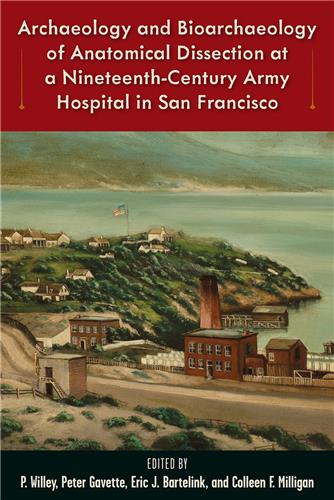Mission Cemeteries, Mission Peoples
Historical and Evolutionary Dimensions of Intracemetery Bioarchaeology in Spanish Florida
Christopher M. Stojanowski
Foreword by Clark Spencer Larsen"Mission Cemeteries, Mission Peoples is a must-have for any student or scholar of bioarchaeology. . . . An instant anthropological classic."--Richard C. Sutter, Indiana University--Purdue University Fort Wayne
Mission Cemeteries, Mission Peoples offers clear, accessible explanations of complex methods for observing evolutionary effects in populations. Christopher Stojanowski’s intimate knowledge of the historical, archaeological, and skeletal data illuminates the existing narrative of diet, disease, and demography in Spanish Florida. Employing intracemetery analyses, he demonstrates how such an approach can provide likely explanations for variability in lived experiences as observed in the bioarchaeological record in instances where historical information is either silent or ambiguous.
Stojanowski forgoes the traditional broadly comparative analysis of Native American populations and instead looks at the physical person who lived in the historic Southeast. What did they eat? Did they die from chronic or acute diseases? With whom did they attend a Spanish church? Where were they buried in death within the church and why? The answers to these questions allow us to infer much about the lives of mission peoples.
Christopher M. Stojanowski is the coeditor of Bioarchaeology and Identity in the Americas and the author of Bioarchaeology of Ethnogenesis in the Colonial Southeast.
No Sample Chapter Available
“Stojanowski builds on previous Spanish Florida research (his own work and that of others) to create a multiscalar and integrated set of interpretations addressing several research questions.”
--American Antiquity
“Stojanowski is adept at translating the scientific speak for the lay reader and making his data accessible with contextualization and integration into other relevant datasets. Moreover, Stojanowski’s interpretations of meaning glimpsed from the integrated data are thoroughly holistic and humanistic; consequently, Mission Cemeteries, Mission People, will likely appeal to anyone interested in the dynamic bicultural landscape of La Florida.”
--American Catholic Studies
This research will be a foundation for studies on cultural and historical questions on the Mission Period for years to come.
--Florida Historical Quarterly
Stojanowski should be commended for his creative and innovative analyses of these extensively studied data sets and for his attention to how spatial patterning and biological data in this community approach can be used to understand differential mortality.
--Journal of Anthropological Research
Stojanowski’s study is fascinating and thought provoking….It is clearly written and contextualizes its findings within the broader realm of Spanish Florida research. It will undoubtedly help lay readers appreciate the frontiers of science and how bioarchaeology is making unique contributions to our understanding of the Spanish colonial-mission experience.
--Catholic Historical Review
Historical archaeologists and bioarchaeologists of the southeast are well served by Stojanowski’s integration of multiple data sets as well as his discussion of colonial mortuary practices.
--American Anthropologist












